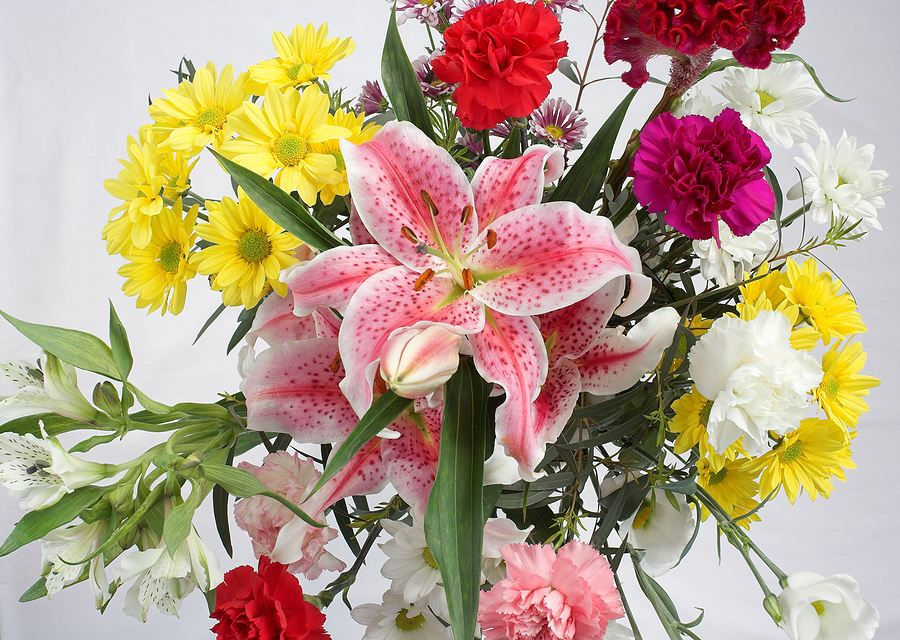In a world saturated with technology, it’s easy to forget that sometimes the most potent remedies for our mental health can be found in the natural world around us. Nature’s beauty often presents itself in the simplest forms, and perhaps there’s no better example than the myriad of flowers that dot our landscapes, both cultivated and wild. From their intoxicating aromas to their vibrant hues, flowers have the potential to do more than just look pretty; they can actually contribute to our mental well-being in numerous ways.
Here, we explore the fascinating intersection of botany and psychology as we delve into the numerous ways flowers can positively impact your mental health.
1. Planting The Seeds Of Calm: Gardening As A Therapeutic Activity
Table of Contents
Gardening has long been acknowledged as a therapeutic activity, often recommended to people dealing with stress, anxiety, or depression. Cultivating a garden, whether it’s an expansive yard or a small balcony, is like nurturing a piece of your own soul. The process of planting seeds, watching them sprout, and eventually bloom, creates a cycle of positive reinforcement. It imbues the gardener with a sense of accomplishment and a touch of awe for the marvels of nature.
In this context, plant gardening therapy benefits can be substantial. This form of ecotherapy engages all of your senses as you dig, plant, smell, and even taste if you’re growing herbs or vegetables. The sensory stimulation itself has calming effects, diverting the mind from negative thoughts.
Studies have shown that spending time in the garden can reduce cortisol levels, the hormone responsible for stress. Beyond its physical aspects, tending to a garden offers a meditative experience that allows room for mindfulness and introspective thought
2. Color Therapy: How Flower Hues Affect Our Mood
Colors have a proven psychological impact. Various shades evoke different emotions; blues are calming, reds energizing, and greens are balancing. Flowers offer a natural palette that can be strategically used to improve mental wellness. For instance, planting lavender can create a sense of calm, while bright sunflowers can instill feelings of happiness and optimism.
Imagine walking into a room adorned with a vase of pink roses. The pink hue evokes a sense of compassion and love, while the fragrance subtly plays with your olfactory senses, leading to a rounded sense of well-being. Colors are more than just visual stimulants; they resonate with us at an emotional level. Incorporating a variety of flower colors into your living space or garden can serve as daily mood enhancers.
3. A Scent-sational Experience: The Power Of Floral Aromas
Scents have a remarkable ability to trigger memories and evoke emotions, thanks to the olfactory system’s direct connection to the brain’s emotional centers. The fragrance of a flower can serve as an emotional catalyst, creating a wave of tranquility or a burst of enthusiasm depending on the scent.
Lavender is renowned for its relaxing and stress-relieving properties. On the other hand, the crisp aroma of a rose can heighten your emotional awareness and give you a sense of luxury and love. Even hospitals and wellness centers have started to integrate aromatherapy into their treatment plans, demonstrating the increasing recognition of the healing power of scents.
4. Floral Arrangement: An Artistic Outlet
Arranging flowers isn’t just a decorative art; it’s a creative process that can have therapeutic effects on your mental health. The act of selecting flowers, thinking about their placement, and finally arranging them in a way that’s visually pleasing can be an incredibly rewarding experience.
This creative endeavor offers a constructive way to channel emotions and enhances cognitive functions. Additionally, the resulting arrangement serves as a tangible representation of your efforts, standing as a vibrant reminder of your creative capabilities. Such positive reinforcement can significantly improve your self-esteem and general mood.
5. Flower Gifting: The Emotional Benefit Of Altruism
The joy of giving flowers is almost as fulfilling as receiving them. Acts of kindness, even as simple as gifting a bouquet, can uplift your spirits and improve your psychological health.
When you offer someone flowers, you’re not just giving them a physical object but a whole range of sensory and emotional experiences. The reciprocal happiness and appreciation can help create stronger social bonds, which is crucial for emotional well-being.
6. Seasonal Blooms: A Lesson In Impermanence And Renewal
The cyclical nature of flowering plants, with their seasons of bloom and dormancy, can offer a poignant metaphor for human emotional cycles. Some flowers, like daffodils and cherry blossoms, make a brief but striking appearance, reminding us of the fleeting nature of moments—both good and bad.
This sense of impermanence can help put our struggles into perspective and instill a sense of hope for renewal. Just as flowers bloom anew each year, there’s always an opportunity for us to grow and renew ourselves, both emotionally and mentally.
7. Community Gardens: Social Bonds And Shared Responsibility
Participating in community gardens can offer several mental health benefits, including social interaction and a sense of community. Shared gardening spaces provide an opportunity to connect with others, fostering relationships that can alleviate feelings of loneliness or isolation.
Additionally, a shared sense of responsibility towards a common, living project can instill a sense of purpose and collective achievement, enriching your emotional life in a meaningful way.
8. Floral Foods: Edible Flowers And Nutritional Wellness
Edible flowers like marigolds, pansies, and nasturtiums are not only beautiful but also contain vitamins and antioxidants that contribute to physical health, which is closely linked with mental well-being.
Incorporating edible flowers into your diet can be an exciting way to engage with your food, making meals a more mindful and enjoyable experience. The act of growing, harvesting, and finally eating flowers you’ve nurtured yourself can be deeply fulfilling and beneficial for your mental equilibrium.

9. Symbolism And Personal Meaning: The Language Of Flowers
Throughout history, flowers have been used to convey specific messages and sentiments, known as floriography. For instance, red roses symbolize love, daisies innocence, and lilies renewal or rebirth.
Engaging with this symbolic language can add a layer of depth to your interactions with flowers. Planting or gifting flowers with specific meanings can serve as affirmations or intentions, setting a positive mental tone for the day or as a long-term reminder of personal goals.
Conclusion
Whether it’s the temporal lesson of seasonal blooms, the social bonds formed in community gardens, the nutritional and experiential delight of edible flowers, or the symbolism that adds emotional weight to our floral interactions, these natural wonders have much more to offer than mere aesthetic pleasure.
So the next time you find yourself awed by the beauty of a simple petal or the aroma of a blooming flower, remember that this botanical marvel could hold the key to enhanced well-being and mental peace. The garden of the mind is ever-expansive, and within its bounds, the humble flower stands as a testament to nature’s ability to heal, comfort, and inspire.
Image Source: BigStockPhoto.com (Licensed)
Related Categories: Health, Reviews








